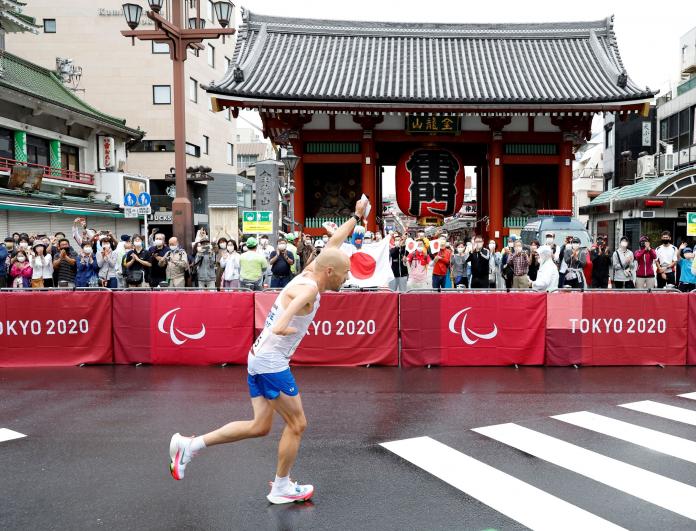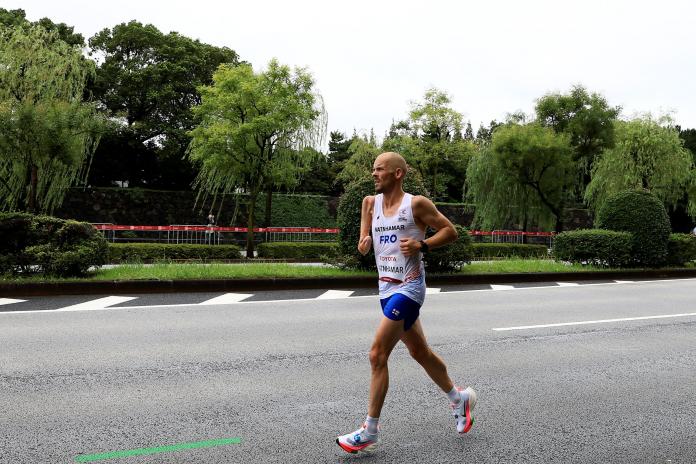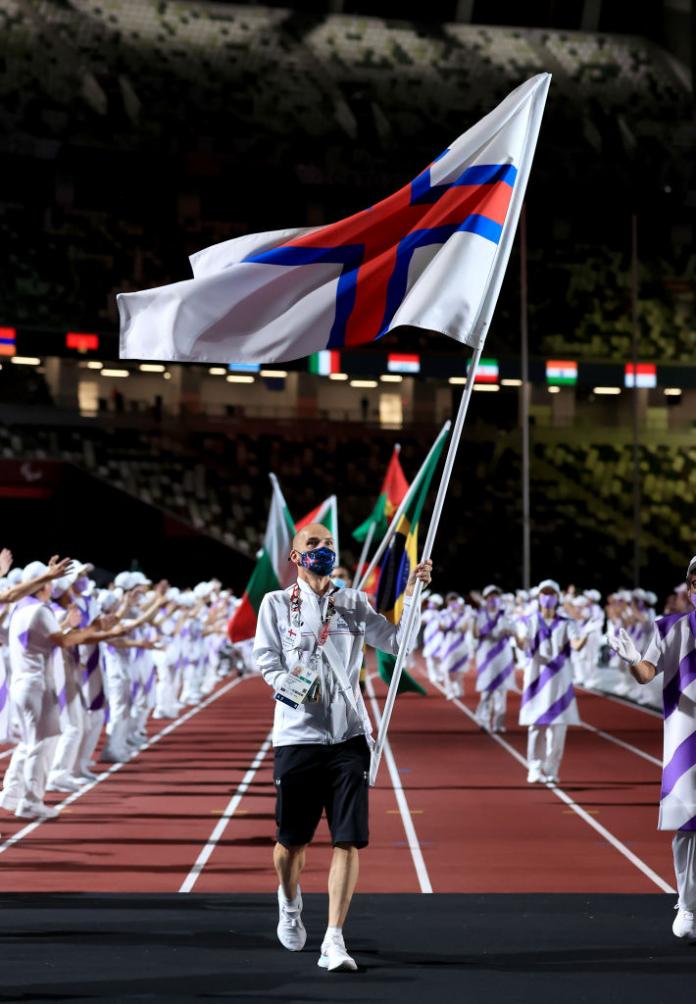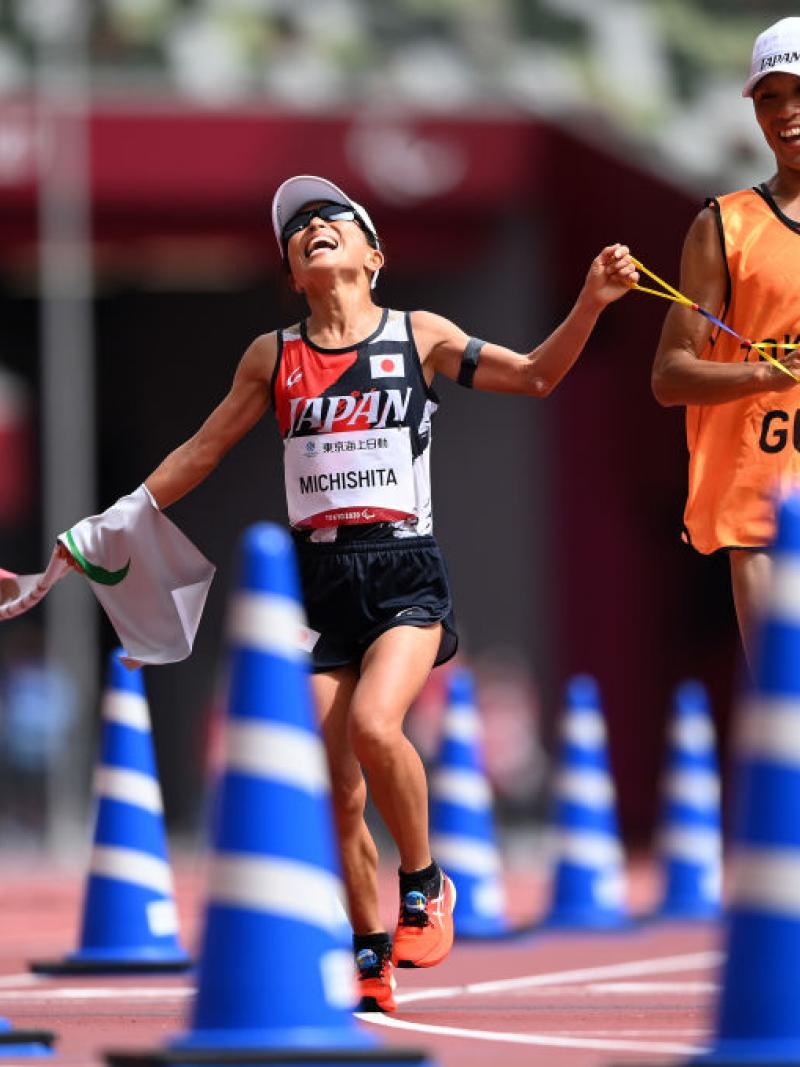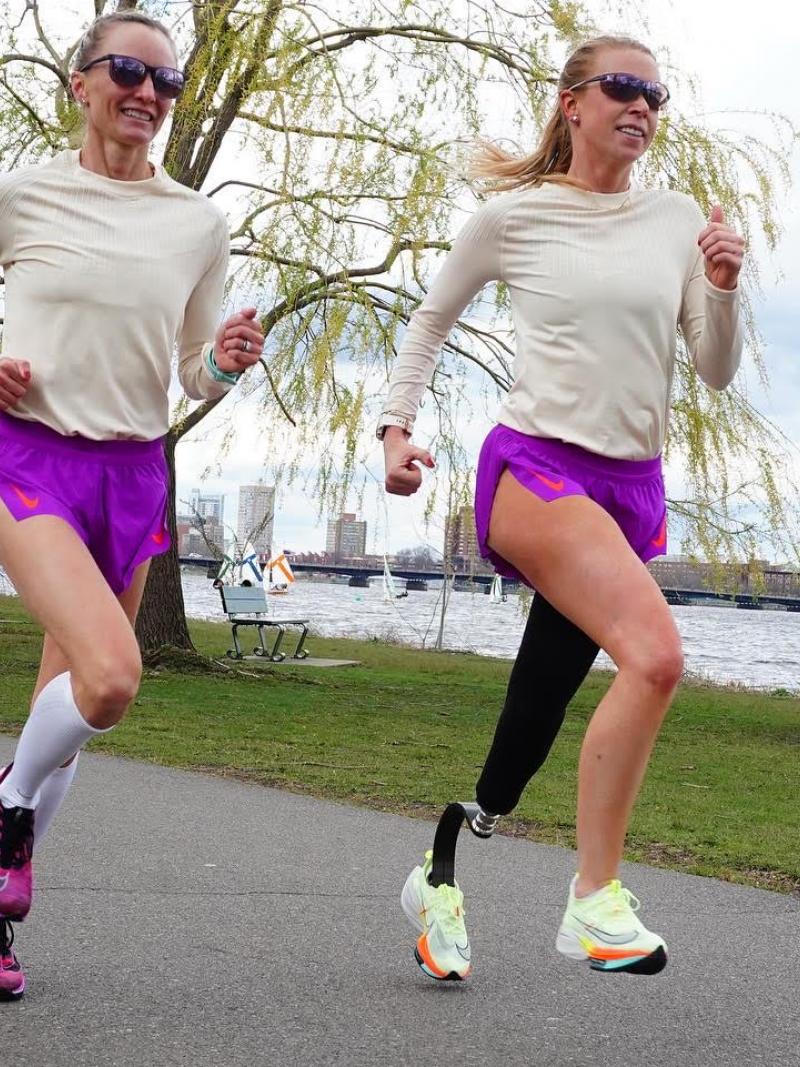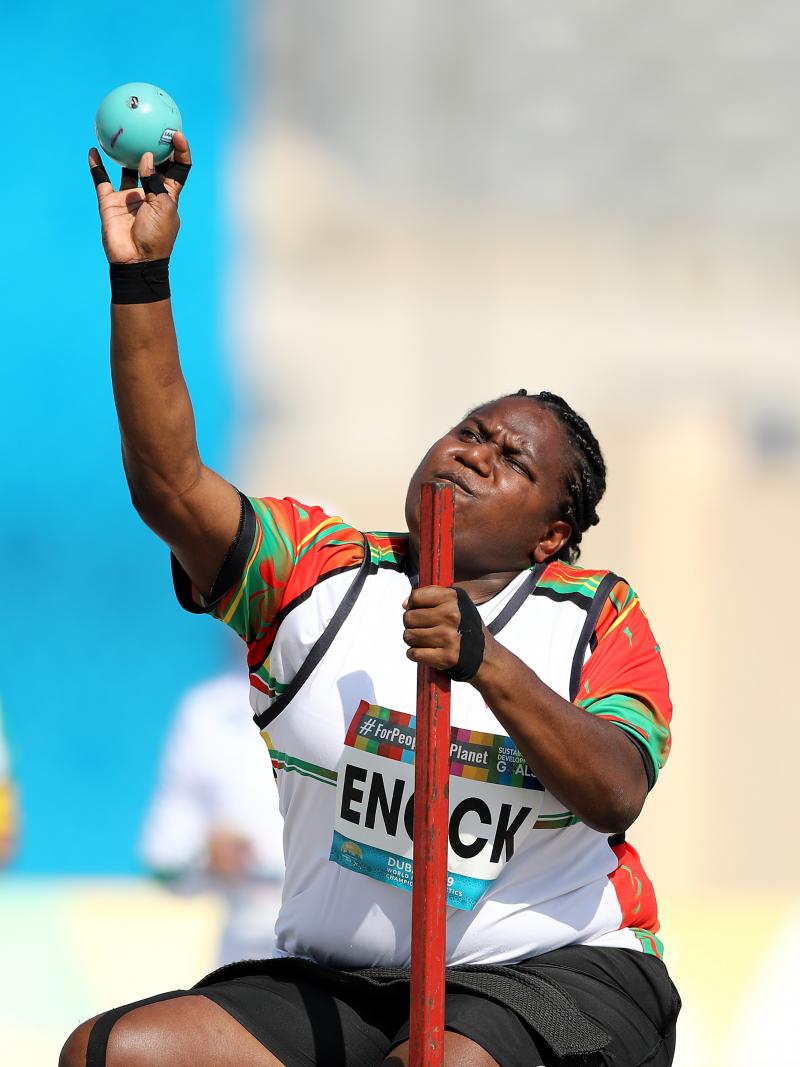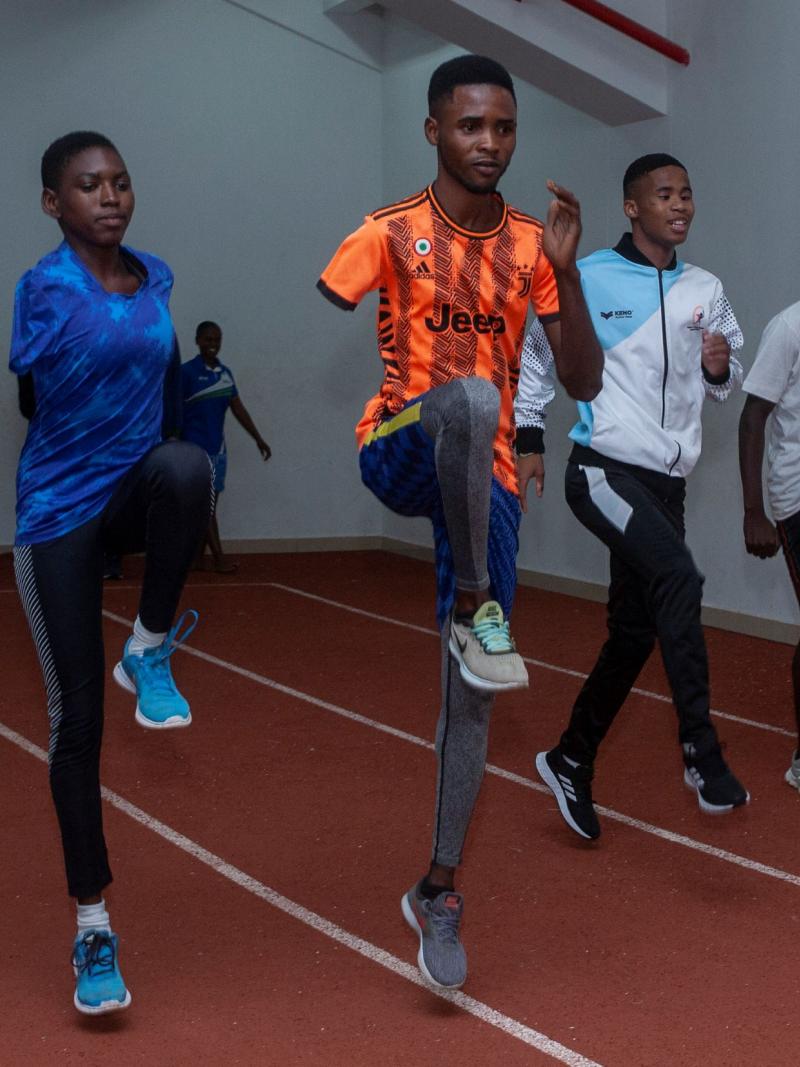Postcard from the Faroes: Vatnhamar's journey as country's only athlete at Tokyo 2020
Marathon runner Havard Vatnhamar only athlete to fly the Faroe Islands flag at the Tokyo 2020 Paralympic or Olympic Games 24 Mar 2023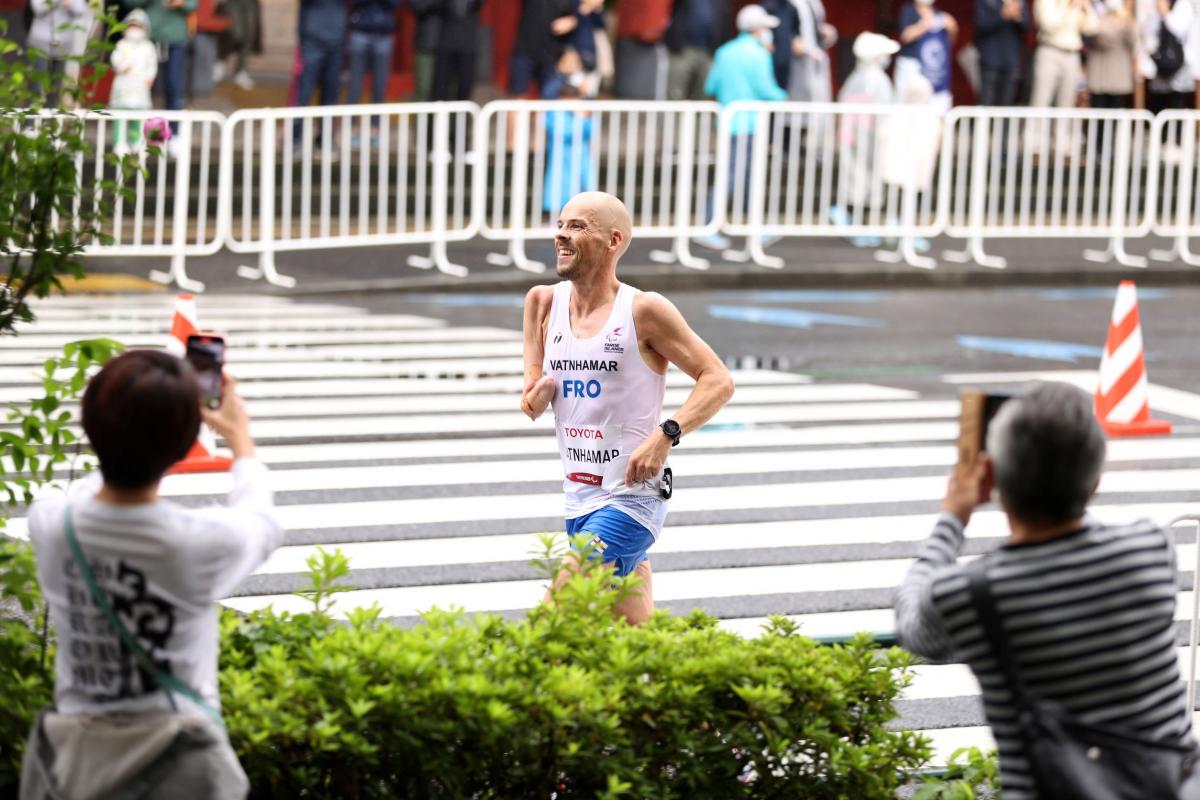
Marathon runner Havard Vatnhamar was the only athlete to represent the Faroe Islands at the Tokyo 2020 Paralympic or Olympic Games. At the age of 45, he finished 10th in the men's marathon T46 – and did it with a smile that will be long remembered in Japan.
"Carrying the flag and knowing I'm the only athlete there to represent my country, it was quite a huge thing for me personally and I just want to be the best representative I can be," said Vatnhamar, who is now 47.
"I knew that – unless everybody else was having a heart attack or something like that – I was not going to be number one, two or three. Or four, five or six, of the 12 starting guys. My priority was to get under three hours."
'Spiritual' race day
On a bright, sunny 5 September 2021 in the Japanese capital, Vatnhamar, who was forced to have his right hand amputated after a fishing accident when he was 16, woke up with no nerves, ready for the biggest sporting memory of his life.
"It was a totally extraordinary experience," he said. "I didn't know what was going to happen. But I was totally relaxed the morning of the race, like 'This is it. This is what you've been training for so there's nothing to be scared of'."
On the start line, he considered the people in his homeland, the Faroe Islands, an island group located about 320km north of the United Kingdom and an autonomous territory of Denmark, where he lives.
"When everybody else was getting ready on the starting line, I was thinking, 'Back in the Faroe Islands and in Denmark, I don't think they were going to see me on the television', so I started waving to let people know I was there. Then I was telling myself, 'You just enjoy this. You've been working so hard for this. This is a time to smile, to enjoy, to give it all out'. So that was my race plan."
While the Games were largely closed to spectators because of Covid, those fans who had come out to get a glimpse of the action helped to boost Vatnhamar's mood even more.
"I was getting cheered on by the spectators on the street," he said. "I was waving back to them and smiling, and it just grew on me all the way.
"I wanted to give back some joy. All my pain was gone and it was just a fantastic experience to be interacting with the people in Tokyo in these corona times. So I ran quite hard and enjoyed myself and enjoyed being there very much. That's why I actually maybe did some crazy things while I was running."
Cheered on by the spectators, Vatnhamar finished in two hours, 58 minutes and 27 seconds to reach his goal of running under three hours. He even took time to make a lasting impression on the Japanese spectators.
"I stopped in front of a temple in Tokyo and bowed to the people in respect. I was waving and I was running backwards – it was crazy. My coach was like, 'Concentrate on the running'. It was really good," he said.
"Afterwards, people from Japan were contacting me on Instagram, sending videos and pictures, thanking me for being there. And I was like, 'Wow, this could not be better'.
"To be able to bring that joy to people just by running and smiling, that this old guy can do that, it was quite a spiritual thing and I am quite grateful to have experienced that. I don't think that a medal could have been better for me. It would've been better for my ego but not for the gratitude that I have towards what I have done, for all the people I met on the way and for the people of Japan."
At world's end
It had been a long journey to Tokyo 2020 for Vatnhamar, who first heard of Para sports as the Barcelona 1992 Paralympic Games took place shortly after his accident.
His father, a fisherman, was disabled with a disc herniation and when Vatnhamar was 14 the family moved to Denmark so he could keep working as waters off the Danish coast were calmer than those around the Faroes. His father kept fishing despite his physical challenges until his death in 2017, proving to Vatnhamar that injury need not be limiting.
"He's been a huge inspiration," he said. "He was always doing what was necessary to be the king of his own life, and to be self-sufficient. He was quite a good fisherman but when he was at home, he was in quite a lot of pain in his back.
"My fishing career was not so good. I failed at the third trip with the ship and that's where I got my injury and got my hand amputated. It was in 1992, just after I finished school. That's the primary reason for why I ended up in Para sports. Just a little bit late, one could say."
From the North Atlantic to the northwest Pacific
Growing up, Vatnhamar's focus was on "football, football, football". And that was how he continued after losing his wrist and hand.
"It was like football was my identity where I actually could show that I still had something to offer," he said. "I was quite a rough football player. I'm a striker but apart from scoring goals, tackling was my main asset. I was really hard, running around tackling, with a kind of a fighter mentality."
Vatnhamar had been swimming during the winters on the Faroe Islands. Watching Barcelona 1992 many of his friends asked if he wanted to pick up Para swimming. Playing football, he suffered from knee problems and started cycling to build his strength in those joints. Forced to quit football, he took a couple of years off before choosing triathlon in 2016.
"I was about 97kg when I started training again," Vatnhamar said. "Because I was living in Denmark and thought nobody knows me on the Faroe Islands, I called the Danish Para sports association and said I was mainly interested in swimming. I had a lot of time and hunger to do something, but I had little money. But they told me I was too old."
And so he turned to his home country, who backed him. But as there was no triathlon federation on the Faroe Islands – and because of an injury in his left hand that made it difficult to cycle – Vatnhamar switched to the marathon, in which he could compete for his homeland.
"It's quite strange because running is my worst discipline, because of my knees, and my right arm is quite heavy and just hanging on my shoulder blade so I don't really control it so much," the athlete said.
"I had to fight out to do this. I said, 'I won't compete for Denmark, I will only compete for Faroe Islands. It's my goal. I'm a Faroese guy'. I may have lived in Denmark for many years but that doesn't change who I am."
And he did not want to go just to take part.
"If I was going to Tokyo, I was not going just to be there, totally last and unable to compete. I wanted to give honour to my country and to the flag," Vatnhamar said. "The sport level has to be competitive. I didn't have that much time so we took the decision on 31 December (2020), and then we started marathon training."
Fiercely Faroese
Vatnhamar started running about 100km a week. Five years after resuming his training, he had lost about a third of his weight and gone from 97kg to 67kg in 2021.
He ran his first marathon in May 2021, less than four months before Tokyo 2020. It was supposed to be the Copenhagen Marathon but that was cancelled because of the pandemic and he had to ask the Danish athletics federation to send officials over to make sure he had run one official marathon before the Games.
He sustained an injury the day before and missed the three-hour goal by four and a half minutes, but Vatnhamar and the Faroe Islands triathlon federation decided they would send him to Tokyo anyway.
"I was really, really happy because I was quite disappointed with myself that I didn't get under those three hours," he said.
Carrying the Faroese flag at the Opening Ceremony, Vatnhamar knew he was unique. At the Olympic Games, Faroese athletes compete under the Danish flag.
"It was a huge moment. You know this is maybe the biggest thing you can do as an athlete from the Faroe Islands – to be at the Paralympics," he said. "You can't go to the Olympics. So unless they (the national football teams) go to the FIFA World Cup, this is it. So it was me.
"I wanted to let the world know that even though we are under the Danish crown, we are our own country, with our own identity, our own language. It's quite important for us to signal that out to the world."
Now Vatnhamar hopes more athletes from the island nation, which has a population of about 52,000, will be able to follow him in the upcoming Games – Paralympic as well as Olympic.
"There aren't that many people but I'm trying to help them open the window to this Para sports world, all that you can experience here and to meet other people with similar disabilities," the marathon runner said. "It's been quite a ride to join the Para sport movement. It's not only about competing but it's also to get sport into your life so you get a healthier life."
Vatnhamar's class in the marathon has been left off the Paris 2024 programme, but he says he "might have another adventure coming".
"I am mostly fond of bike riding and Faroe Islands only just got a membership from the UCI (International Cycling Union) back in October, and also the ITU (International Triathlon Union, now known as World Triathlon), so we are working on me maybe trying for Paris on the bike," Vatnhamar said.
"This is not about me trying to go to the Paralympics again. It's about making people on the Faroe Islands view Para sport as worthy and see the importance of it."

 Facebook
Facebook
 Instagram
Instagram
 Twitter
Twitter
 Youtube
Youtube

